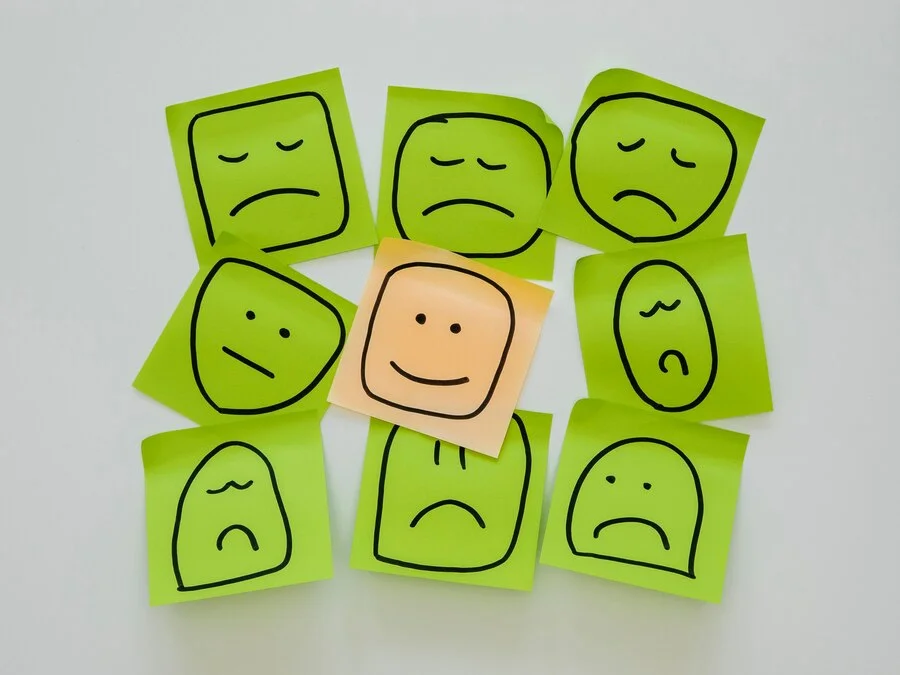-
129, Block-A Bangur Avenue, Mousumi Appartment, Kolkata 700055
129, Block-A Bangur Avenue, Mousumi Appartment, Kolkata 700055

Emotional triggers can affect mental well-being. Learn how to recognize, understand, and heal emotional triggers with insights from a reputed counselor.
Have you ever reacted strongly to a seemingly small event and later wondered, “Why did that affect me so much?” That moment is often the result of an emotional trigger.
Emotional triggers are intense emotional reactions—often fear, anger, sadness, or shame—that arise due to past experiences, unresolved trauma, or unmet needs. They’re not inherently bad, but if not understood or healed, they can limit personal growth, disrupt relationships, and impact mental health.

Recognizing emotional triggers is a vital step in emotional intelligence. When you become aware of what triggers you and why, you can:
Healing emotional triggers isn’t about avoiding them. It’s about facing them with awareness and compassion.
Understanding the types of triggers can help in self-awareness and healing.
When triggered, the brain’s amygdala activates the “fight-or-flight” response—even when there’s no real danger. This causes:
Over time, unaddressed triggers can lead to chronic stress, anxiety disorders, depression, and even physical symptoms like fatigue or digestive issues.
Before healing, you need to know what you’re healing from. Here’s how:
Keep a journal. Note the moments when your reaction feels disproportionate to the situation.
Use the “5 Whys” technique. Keep asking why until you find the core belief or memory behind your reaction.
Our bodies hold emotional memories. Tight shoulders, a lump in the throat, or a clenched jaw are physical cues.
What past events echo your current experience? Childhood wounds often shape adult reactions.

Healing emotional triggers is a journey—but a transformative one.
Being present helps you notice triggers without judgment. Try:
Shift from “I’m not good enough” to “I’m doing my best with what I have.”
Many triggers stem from unmet childhood needs. Reparenting your inner child—acknowledging their pain and offering love—can be powerful.
Learn tools like:
Sometimes, healing needs a safe space and expert support. A trained counselor can help you:
While self-help is valuable, emotional triggers often run deeper than we realize. Therapy offers:
Individuals who engage in professional psychological counseling often experience a greater sense of emotional freedom, improved self-awareness, healthier relationships, and enhanced mental clarity in their daily lives.
Healing emotional triggers isn’t about avoiding emotions—it’s about learning to sit with them, understand them, and respond consciously. The process can feel overwhelming, but with proper support, emotional resilience is absolutely attainable.
A professional counselor doesn’t just “fix” you—they empower you to understand your own emotional blueprint.
When you begin healing emotional triggers, here’s what can shift in your life:

No. They are natural reactions based on past pain. Recognizing and healing them takes courage and strength.
You can begin the journey with self-help, but working with a counselor accelerates and deepens healing.
It varies by person. With consistent effort and professional guidance, most people notice improvement in a few months.
That’s common. Journaling and therapy can help uncover patterns and subconscious associations.
Not always, but many are rooted in early experiences. Some also develop from traumatic events in adulthood.
Emotional triggers are not your enemy—they’re messages from your inner world asking to be heard and healed. By understanding what lies beneath your reactions, you regain the power to respond with intention and clarity.
Healing is a journey, and you don’t have to walk it alone. If you’re ready to take that step, expert counseling from trusted professionals can guide you gently toward emotional well-being.